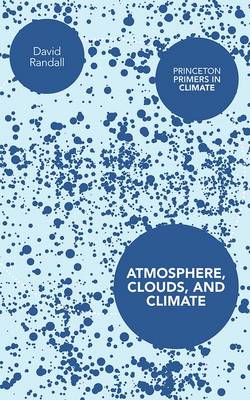Princeton Primers in Climate
1 total work
The atmosphere is critical to climate change. It can amplify shifts in the climate system, and also mitigate them. This primer offers a short, reader-friendly introduction to these atmospheric processes and how they work, written by a leading expert on the subject. Giving readers an overview of key atmospheric processes, David Randall looks at how our climate system receives energy from the sun and sheds it by emitting infrared radiation back into space. The atmosphere regulates these radiative energy flows and transports energy through weather systems such as thunderstorms, monsoons, hurricanes, and winter storms. Randall explains how these processes work, and also how precipitation, cloud formation, and other phase changes of water strongly influence weather and climate. He discusses how atmospheric feedbacks affect climate change, how the large-scale atmospheric circulation works, how predicting the weather and the climate are fundamentally different challenges, and much more. This is the ideal introduction for students and nonspecialists. No prior experience in atmospheric science is needed, only basic college physics.
Authoritative and concise, Atmosphere, Clouds, and Climate features a glossary of terms, suggestions for further reading, and easy-to-follow explanations of a few key equations. This accessible primer is the essential introduction to atmospheric processes and the vital role they play in our climate system.
Authoritative and concise, Atmosphere, Clouds, and Climate features a glossary of terms, suggestions for further reading, and easy-to-follow explanations of a few key equations. This accessible primer is the essential introduction to atmospheric processes and the vital role they play in our climate system.
